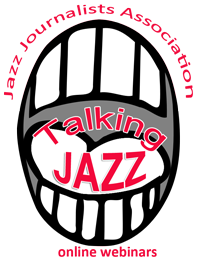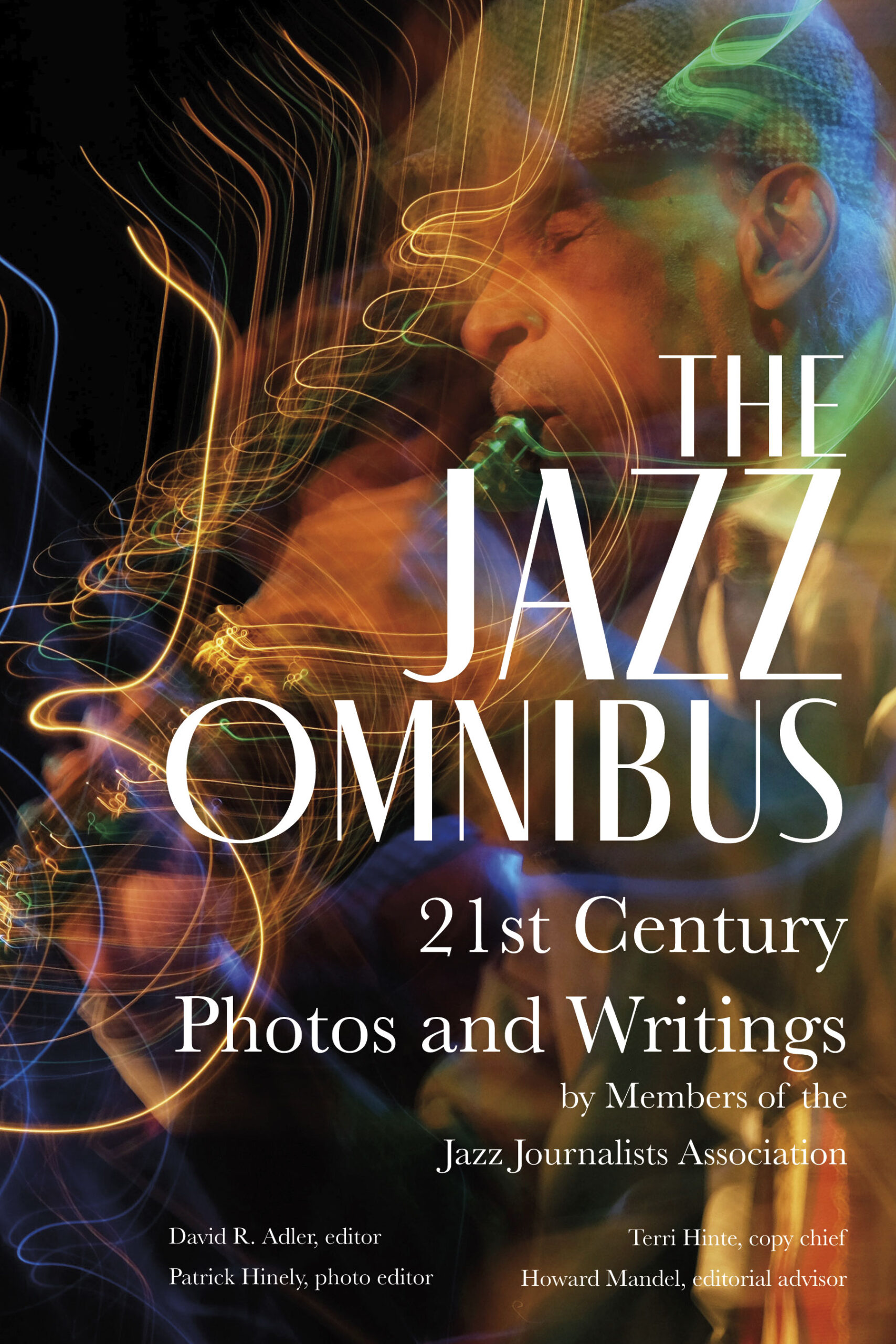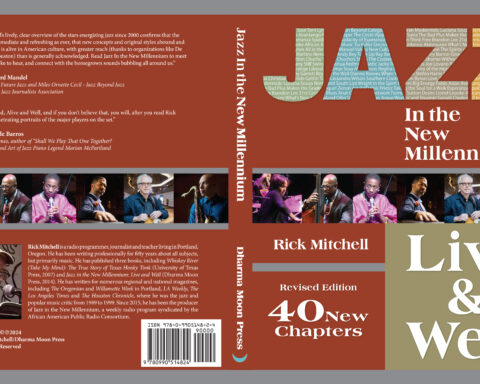Rescheduled for the second time! due to hangups with Google Hangouts, Wednesday April 23 is the new date (at 8 pm EDT) of “The New Online Publications,” introducing four publisher-editors hammering out models for upcoming jazz media. Seventh of the JJA’s free interactive Talking Jazz panel series presented by the Anita E. Berry Education Fund of The Jazz Cruise (which has just committed to second year funding of the series), “The New Online Publications” will bring together Anthony Dean-Harris of NextBop, Giovanni Russonello of Capitol Bop, Danilo Navas of the Latin Jazz Network and John Moultrie of iRockJazz  to discuss the missions and challenges of their startup journalism platforms, including coverage decisions and relations with contributors. JJA president Howard Mandel will moderate the 90-minute session, injecting audience questions into the flow and having some of his own.
to discuss the missions and challenges of their startup journalism platforms, including coverage decisions and relations with contributors. JJA president Howard Mandel will moderate the 90-minute session, injecting audience questions into the flow and having some of his own.
The first of the five spring-to-summer course of Talking Jazz was held in mid February regarding the teaching  school kids — and not only music students — about basic jazz values, including how the music reflects American culture. Activist-educators Dr. Wes Watkins IV of the Jazz and Democracy Project; Todd Stoll, vice president of education at Jazz at Lincoln Center’s educational
school kids — and not only music students — about basic jazz values, including how the music reflects American culture. Activist-educators Dr. Wes Watkins IV of the Jazz and Democracy Project; Todd Stoll, vice president of education at Jazz at Lincoln Center’s educational
department, and Sharon Burch, chair of the Jazz Education Network’s education committee and author of the Freddie the Frog books, gave concrete examples of their individual approaches and experiences, united about the visibly positive effects of such lessons. The season’s third Talking Jazz session, tentatively scheduled for April 16, is planned with major voices in established jazz journalism platforms, describing of the landscape for the profession now and what they see ahead.
The Talking Jazz panels (or webinars) are presented by The Jazz Cruise as a project of its the Anita E. Berry Educational Fund, with further support from Century Media Partners. The sessions, conducted as Google Hangouts and viewable at JJA News, are archived for later viewing by those not able to participate live. Starting in September 2013, the JJA has produced seven of these monthly sessions, all moderated by JJA president Howard Mandel.
In January, ending the first Talking Jazz season, Michael Cogswell (executive director of the Louis Armstrong House Museum), Ken Kimery of the Smithsonian Jazz Masterworks Orchestra (National Museum of American History) and Marcia Baird-Burris of the Anacostia Community Museum (a Smithsonian affiliate) spoke of on how local communities can get their music in or from established institutions, and what established institutions can do for community outreach. Previously arts journalism educators; experts on federal, state and local funding for jazz; major jazz presenters and broadcasting consultants and leaders in jazz diplomacy efforts have been panelists.
Though Talking Jazz has precedent in the JJA’s “Interactiview” online chat-fests held at Jazzhouse.com in the late 1990s, its more recent point of origin was an an expansion of the regularly schedule online webinars the JJA began to produce in 2011 with its celebrated eyeJAZZ video instructional program. Online audio-only webinars continued in 2012 as topical discussions, but Talking Jazz upgrades the webinar experience by providing live streaming video of the panelists.
The JJA has a long history of presenting panel discussions — at the recent Jazz Connect conference in New York City, in conjunction with prior conventions of the Association of Performing Arts Presenters, Chamber Music America and the International Association for Jazz Education, at the National Critics Conference in Los Angeles (2005), at festivals in Newport, Chicago, San Francisco, Portland and Monterey as well as the “Jazz Matters” series held monthly for several years at the New School jazz program in Manhattan. Online the JJA reaches a far wider audience than was ever able to be in-person attendance at in-person meetings.





